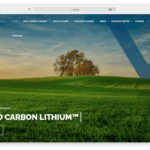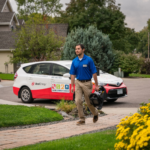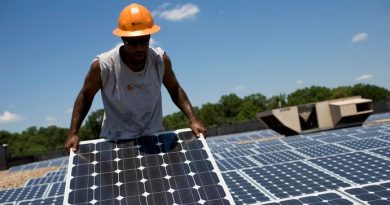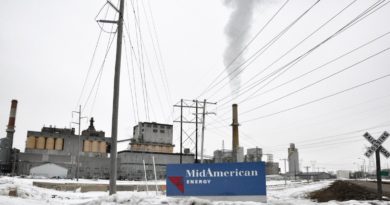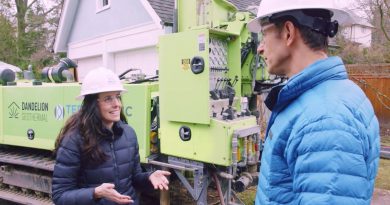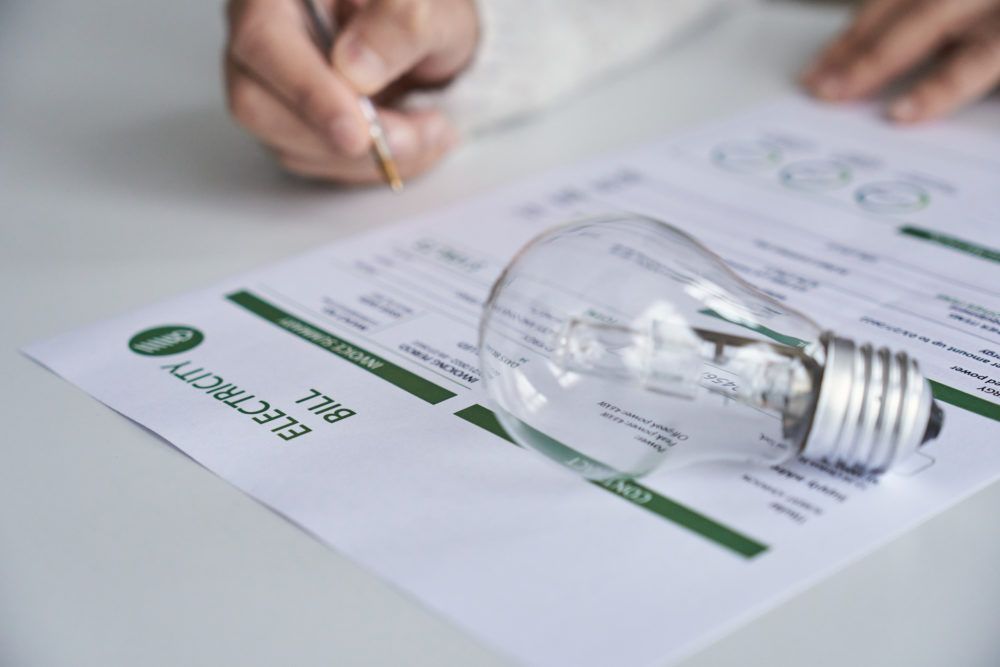Taking Charge: Equity must be ‘baked in’ to energy laws, tax policy, says ASE President Glover – Utility Dive
Energy Disrupter

This is the latest installment in Utility Dive’s “Taking Charge” series, where we engage with power sector leaders on the energy transition.
As the energy transition picks up momentum, the utility industry is recognizing that issues of equity and inclusion must inform policy and law in order to ensure that decarbonization of the power sector benefits everyone.
“Utility companies are no different than most of corporate America, who came out of last summer and had a little bit of a moral check,” Paula Glover, president of the Alliance to Save Energy (ASE), said in an interview with Utility Dive.
Glover said corporate America as a whole is now asking how it can contribute to the larger social justice narrative in a positive way — and the energy sector can play a key role.
“I think what you’re seeing with utility companies over the last 12 months is really reflective of what most of a lot of corporate America is doing, particularly after George Floyd’s murder,” Glover said.
Floyd, who was Black, was murdered in May 2020 by a White police officer in Minneapolis. The protests over the killing, and the subsequent focus on issues of racism and policing, have led to a rethinking of equity and a commitment to inclusion in many areas and businesses.
Investor-owned utilities have made commitments to advance racial and social justice, the Federal Energy Regulatory Commission established an Office of Public Participation, and the U.S. Department of Energy is working to encourage deployment of more solar and storage in low- and moderate-income communities.
ASE is committed to its core goal of advancing energy efficiency policy. But Glover pointed out that equity issues are getting more attention at the same time President Joe Biden is pressing for greater investment in clean energy and decarbonization.
“We’re really focused on our legislative priorities with this particular Congress, with infrastructure and [the budget] reconciliation,” said Glover. “We’re always focused on energy efficiency, but I would say that this year, in particular, we’re also focused on equity as part of our policy.”
That means ASE is thinking about policy in two ways, Glover said. First, “how do we expand energy efficiency to more households and businesses? … But also, what does equity mean, when we talk about policymaking? And are there particular policies that would be more advantageous?”
Legislative priorities
The alliance is closely watching two pieces of legislation, said Glover, which have the potential to move through the budget reconciliation process.
The first is the Open Back Better Act, which allocates $22 billion to retrofit critical facilities over five years, leveraging private investment at a 4-1 ratio. Federal funding would be paired with private investment to leverage performance contracting and performance-based services contracts to deliver $110 billion in infrastructure improvements.
“That bill is really focused on [public] building retrofits and getting efficiency into those buildings,” said Glover. Funds from the proposal would flow through DOE’s State Energy Program, with at least $2.5 billion of the funding directed to federal projects.
ASE’s second legislative priority is the Main Street Efficiency Act of 2021, which would establish a Department of Energy grant program to provide low- or no-cost energy efficiency upgrades for small businesses.
“It’s like a matching grant program for small businesses that are participating in utility efficiency programs or state-level programs,” said Glover. “What we’re hoping will happen is that for many businesses, they’ll have no upfront costs to adopt [efficiency] measures.”
And of those funds, ASE is advocating for 40% to go toward disadvantaged communities and be spent with disadvantaged businesses. That would align with the White House’s Justice40 initiative, which aims to deliver at least 40% of the overall benefits from federal investments in climate and clean energy to disadvantaged communities.
The two pieces of legislation “really do have a particular focus on equity,” said Glover, and as of now it appears they are in the reconciliation package the Democrats are developing.
“Maybe not at the dollar levels that we’re asking for,” said Glover, “but certainly we’ve been talking with members who are working to get that in reconciliation.”
Tax policy
ASE is also advocating for a trio of tax proposals that would boost energy efficiency while also keeping a focus on equity.
“As we think about tax policy, we are thinking about equity and how impactful tax policy can be for low- moderate-income households and families,” Glover said. “Do we need to be thinking about tax policies differently? Are there different types of policies that we need to be considering?”
ASE has asked lawmakers to bolster the 25C tax credit to assist homeowners in purchasing energy efficiency equipment or making other energy-saving upgrades, including insulation, duct work, and heating and air conditioning equipment. The group says it generally supports the approaches taken in the Home Energy Savings Act, the GREEN Act, and the Clean Energy for America Act to expanding the credit.
ASE also wants to see the 45L credit for home builders who build more energy-efficient homes extended, and for the 179D deduction for efficiency improvements in commercial buildings to be expanded.
The House Ways and Means Committee has proposed the tax changes as part of the Build Back Better reconciliation package.
In particular, Glover said expansion of 25C can help incentivize residential upgrades, whereas current rules have little impact because credits are relatively small and have a lifetime cap. Homes make up roughly 20% of U.S. energy consumption, according to ASE, and she said the existing incentive “is simply not meaningful enough to significantly influence consumer behavior.”
“So one of the big changes is, how do we make these credits annual as opposed to lifetime? And then, in some cases, they need to be bigger,” Glover said.
Efficiency first
ASE’s focus on equity in policy is new but Glover stresses, “we’re still efficiency first.”
The focus on policy and legislation is a way to ensure equity concerns are “baked in” to the energy transition, said Glover. And the group sees opportunity to work with the White House on the approach.
“I think that that’s part of what the administration is trying to get to, with their Justice40 initiative … and I would say industry very broadly is thinking about it in that way,” said Glover. “And that’s just different than how we’ve thought about it before.”
Helping customers reduce energy consumption can help the environment as well as strengthen communities and households, ASE says. The Main Street Efficiency Act, for instance, would reduce carbon emissions by 40 million metric tons over the lifetime of the measures and save about 60,000 GWh of electricity, according to analysis by the American Council for an Energy-Efficient Economy. It would also help create 60,000 jobs over three years, primarily small contractors offering efficiency services
“I wholeheartedly believe efficiency is really the first answer,” Glover said. “If we’re going to start talking about climate change, if we’re going to talk about economic development and growth in the energy business, it is efficiency where we should be really looking at starting first.”
Original Source: https://www.utilitydive.com/news/taking-charge-equity-must-be-baked-in-to-energy-laws-tax-policy-says-a/606602/






